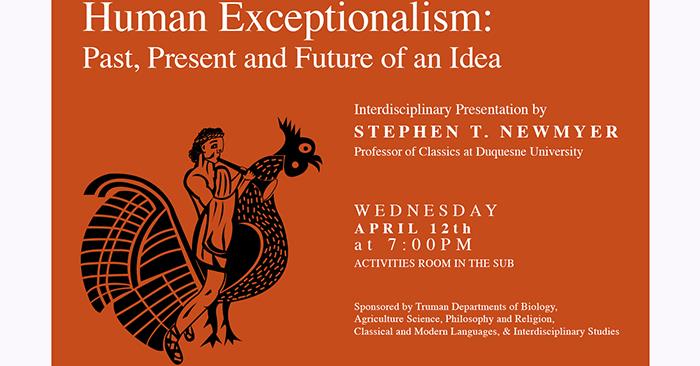Visiting Scholar Discusses Human Exceptionalism
Dr. Stephen T. Newmyer will present “Human Exceptionalism: Past, Present and Future of an Idea,” at 7 p.m. April 12 in the Activities Room of the Student Union Building.
Ancient Greeks endeavored to define the human being vis-à-vis other animal species by isolating capacities and endowments which they considered to be unique to humans. This approach toward defining the human being still appears with surprising frequency, in modern philosophical treatises, in modern animal behavioral studies and in animal rights literature, to argue both for and against the position that human beings are special and unique because of one or another attribute or skill they are believed to possess. Some of the claims of man’s unique endowments have in recent years become the subject of intensive investigation by cognitive ethologists carried out in non-laboratory contexts.
Newmyer’s research centers on ancient views on animals, in particular on issues of animal rationality, as these ancient ideas anticipate arguments in modern animal rights philosophy and cognitive ethology pertaining to intellect and emotions in animals. He has published extensively on many topics relating to Greek and Roman views on human-animal relations and has authored three books on animals in classical culture: “The Animal and the Human in Ancient and Modern Thought: The ‘Man Alone of Animals’ Concept”; “Animals in Greek and Roman Thought: A Sourcebook of Readings”; and “Animals, Rights and Reason in Plutarch and Modern Ethics.”
The departments of interdisciplinary studies, agricultural science, philosophy and religion, biology and classical and modern languages are sponsoring this presentation, which is free and open to the public.


